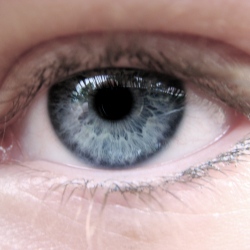
The operation involved inserting a gene into the eye, a treatment that revived light-detecting cells. The doctors involved believe that the treatment could in time be used to treat common forms of blindness. Prof Robert MacLaren, the surgeon who led the research, said he was "absolutely delighted" at the outcome.
"We really couldn’t have asked for a better result," he said.
BBC News exclusively reported on the start of the trial two years ago. The first patient was Jonathan Wyatt, who was 63 at the time. Mr Wyatt has a genetic condition known as choroideremia, which results in the light-detecting cells at the back of the eye gradually dying.
Mr Wyatt was still just about able to see when he had the operation. His hope was that the procedure would stop further deterioration and save what little sight he had left.
He, like another patient in Professor MacLaren’s trial, found that not only did the operation stabilise his vision – it improved it. The other subjects, who were at earlier stages in their vision, experienced improvements in their ability to see at night.
